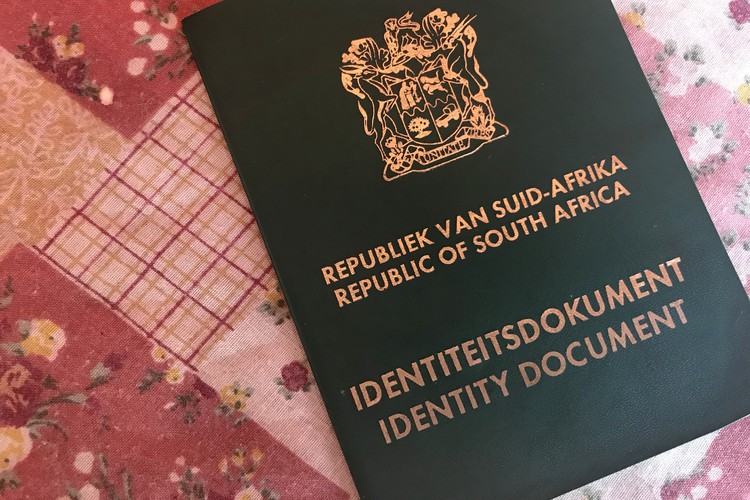
17 July 2024
About 700,000 IDs have been blocked by the Department of Home Affairs without due process. Archive photo: Ashraf Hendricks
The Department of Home Affairs has not complied with two court rulings which found the unilateral “blocking of IDs” to be unfair and illegal.
In January this year, Pretoria High Court Judge Elmarie van der Schyff said ID blocking without notice, timeous investigation and appeal processes was unconstitutional.
While she suspended her ruling for a year to give Home Affairs time to sort out its processes, she ordered that the department must, within 90 days, determine the status of the more than 100 applicants in the matter. The applicants were represented by Lawyers for Human Rights (LHR) and LegalWise.
She also ordered the immediate removal of any blocks on children whose parents’ status as South African citizens or permanent residents have not been finally revoked.
But LHR says this order has not been complied with and it intends to launch contempt proceedings against the department.
LHR legal consultant Palesa Maloisane said following the order, the LHR had given the department a list of its clients but had only received inadequate correspondence on 4 July - after the 90-day deadline.
She said some clients had reported that during the 90-day period, the department issued them with letters requesting they make representations on the status of their IDs, with supporting documentation, within 14 days, failing which their ID numbers would be cancelled.
“This practice is contrary to the purpose and the spirit of the order,” she said.
Maloisane said the pending contempt application would be raised at an upcoming case management meeting with Judge Van der Schyff.
In the meantime, she said, many IDs remain blocked. And their clients struggle to get birth, marriage and death certificates.
“Sometimes ID blocking can even lead to citizenship stripping and statelessness, especially when the reason for blocking the ID is linked to an allegation that you are not a South African citizen,” said Maloisane.
On 14 June fraud investigator Fhatuwani Sibanda secured a court order reviewing and setting aside the decision to block his ID, the judge noting that his South African citizenship was “crystal clear”.
Pretoria High Court Judge Mabaeng Lenyai ordered the department to lift the block within 15 days, and that officials must give him back his smart ID card and passport, which had been confiscated.
But Sibanda’s attorney confirmed the ID was still blocked and his passport still “marked”.
Mukhethwa Nthambeleni told GroundUp: “Home Affairs has not yet complied with the court order, and we have not received any indication that it is appealing the ruling. Therefore, it still stands. The next step is to approach the Sheriff to serve the order.”
He said his client’s situation was untenable.
According to Judge Lenyai’s judgment, Sibanda was first granted an interim interdict in November 2021, ordering the department to reinstate and uplift the block on his ID.
But this order was also not complied with.
He returned to court for the final order. The department filed its opposing papers almost two months late. The reasons given by the Director-General for the delay “displayed a lack of regard for the interests of (Sibanda) and his family”, the judge noted, refusing to condone the delay for the late filing.
“The nature of the relief sought deals with issues of citizenship which require all concerned to act swiftly to resolve the matter … He (Sibanda) has been stripped of his rights as a citizen. He cannot freely travel anywhere without his passport and his Smart ID Card. His livelihood has been adversely affected and both he and his family are suffering immensely for as long as the matter remains unresolved,” Judge Lenyai said.
Sibanda said his mother is South African and he was born here. He is also married to a South African and has four children.
After his birth, his mother married a Zimbabwean and at some point, the family moved there. He schooled there and then returned to South Africa after completing his O-levels.
He studied further in South Africa, attaining a BCom in Business Management, and worked as a fraud investigator at several firms and finally got a job at Eskom.
However, the issue was raised again after he joined the South African Forestry Company.
He was subsequently interviewed by department officials who instructed him to surrender his ID and his passport.
He then took it upon himself to conduct a DNA test which proved that his mother was his mother.
He applied to the Director-General to unblock his card, but was informed that this had been rejected.
Judge Lenyai said she was convinced, after a careful consideration of the issues, that Sibanda was South African “and his birthright was crystal clear”.
The judge said Sibanda had been suspended, and later dismissed from work for not disclosing that he was not South African and “remains unemployed to this day”.
He was unable to support his family and his ailing mother. His daughter had been unable to register to study nursing because of his status.
“He does not have the freedom of movement and is now regarded as an undesirable, an illegal foreigner.”
Further, Judge Lenyai said, his entire family had now been threatened with status verification.
She reviewed the decision to block and suspend his ID, declared that he is a South African citizen and ordered the department to pay costs of both the interim interdict and the final interdict on a punitive scale.
Home Affairs did not respond to a request for comment.